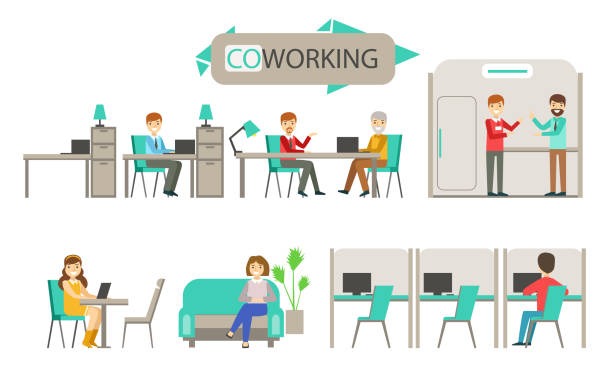Most entrepreneurs, particularly in the beginning stages, value every single penny. Startups are always juggling the need to create, hire, and market whilst maintaining an efficient handle on operational expenditures.
Coworking spaces provide a groundbreaking solution in this regard. With the advent of flexible, shared workspaces in Indian metros and growing cities, coworking has become a financially viable, scalable choice for entrepreneurs.
In this blog, we’ll go over how managed office spaces may help entrepreneurs reduce expenses without necessarily compromising corners. From reducing hidden costs to gaining access to enterprise-level facilities at a fraction of the cost, here’s precisely why coworking is not just a trend but a survival strategy.
Understanding the Unexpected Savings in Coworking Spaces
When looking for office space, rent is merely the tip of the iceberg. Conventional office leases include a variety of hidden charges, including setup fees, regular upkeep, utilities, and long-term obligations, which may rapidly mount up.
Coworking facilities streamline the process and significantly lower these hidden expenses, providing companies with a wiser, more economical option.
1. No Monetary Investment, No Headaches
Outfitting a standard workplace requires investing in furniture, equipment, conference rooms, internet, temperature control, and IT systems well before the first day of operations. These capital expenses may place a significant strain on startup budgets.
Furthermore, the contemporary, professionally designed settings of coworking spaces promote efficiency and employee comfort without needing entrepreneurs to invest in costly interiors.
2. Bundled Services and Streamlined Spending
Operating a typical workplace incurs recurrent costs such as energy, cleaning, security, administrative workers, pantry supplies, and so on. Startups often spend these expenditures inefficiently while maintaining their own premises.
In coworking spaces, these services are merged into a single predictable monthly charge. Shared facilities reduce costs via economies of scale, and entrepreneurs eliminate the headache of maintaining several providers or dealing with unexpected charges.
Even facilities that are generally additional costs, such as meeting rooms and event venues, are included or supplied at a discounted charge to members.
3. Growth-Friendly Versatility
Startup routes are volatile. One month, you’re recruiting quickly; the next, you’re shifting. Fixed leases may not allow these changes, trapping companies into space and expenditures that they may outgrow or even underutilize.
Coworking provides built-in scalability. Essentially, this on-demand flexibility allows you to pay for just what you require, whenever you require it.
It is particularly perfect for project-based teams or interim expansions since it allows you to add seats without making long-term commitments.
4. Excellent Locations Without the Cost
Emerging companies sometimes struggle to afford office space in desirable commercial regions. However, location has a significant impact on brand image, talent attraction, and shareholder trust.
Coworking spaces offer access to high-profile sites for a fraction of the usual price. This increases a startup’s visibility and reputation while being cost-effective.
Many are also conveniently set up near public transportation, cafés, and lifestyle activities, which increases employee convenience and contentment.
5. Low Commitment, Outstanding Agility
Traditional leases bind enterprises to long-term contracts, substantial deposits, and strict stipulations. If your direction changes, the office space becomes an expensive liability.
Coworking settings escape this challenge by offering flexible, short-term arrangements. Many companies offer monthly leases with no lock-ins or leaving fees, which is ideal for startups that need to remain nimble and responsive.
This independence enables entrepreneurs to make strategic choices without financial constraints, allowing for smoother pivots, pauses, or relocations.
Why Coworking is an Effective Financial Strategy for Startups
Startups are always competing against time and money. Every financial choice must be carefully considered, particularly in the early phases when income may be minimal, and revenue must be stretched.
Coworking spaces do more than simply lower operating costs; they also promote a more strategic approach to corporate financing and development.
Reduced Burn Rate, Greater Runway
In an early-stage company, cash flow is everything. Coworking spaces reduce your monthly burn rate by drastically lowering office-related expenditures. This implies that the same money lasts longer, providing creators more time to innovate, iterate, and achieve product-market fit without seeking quick investment or compromising on necessities.
With smaller monthly responsibilities, companies may be more proactive in critical areas such as acquiring top people, marketing campaigns, customer acquisition, and product development.
Operational Focus, Not Facilities Management
Managing an independent office setup, whether it’s negotiating with service suppliers, supervising internet difficulties, or handling office upkeep, takes founders’ and core teams’ attention away from the product or service they’re developing.
Coworking spaces handle all of the operational complexities. Facilities, security, utilities, cleaning, and technical support are all handled properly. What is the result? Founders prioritize strategy, execution, and growth above addressing malfunctioning printers.
Professional Setting Without Enterprise Costs
A well-designed office improves morale, productivity, and cooperation. However, replicating an outstanding corporate setting in a single office may be quite costly. Coworking spaces fill this need by providing upscale interiors, breakout zones, conference rooms, and technology infrastructure for a fraction of business prices.
Some coworking spaces are more than simply real estate; they serve as small creative ecosystems. Startups often have access to networking events, seminars, mentoring possibilities, and even investor connections.
For a cash-strapped firm, this inherent value might be just as important as the space itself.
Wrapping Up
For entrepreneurs dealing with uncertain advancement and restricted funds, coworking spaces provide a wiser, leaner approach to increasing operations.
The additional benefit of a dynamic professional atmosphere, seamless infrastructure, and built-in community elevates coworking to the status of a competitive edge.
As the startup ecosystem evolves, adopting cost-effective office spaces by providers may give the financial breathing space that every early-stage firm needs. And when selected carefully, the ideal coworking framework may drive long-term growth.
